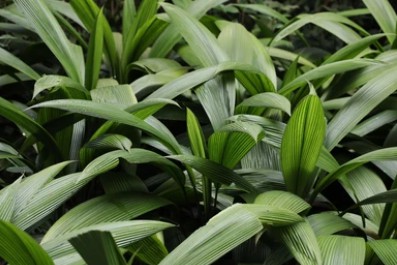
Curculin is a sweet protein discovered and isolated from the fruit of the Malaysian plant Curculigo latifolia (Hypoxidaceae) in 1990. The active form of curculin is a homodimer with a sweet taste-modifying activity. It is a simple protein without sugar groups, a dimer formed by the polymerization of two subunits, containing 114 amino acid residues and a pI of 7.1. The sweetness is 430-2,070 times that of sucrose. With the increasing incidence of diseases such as diabetes and obesity, safe and non-caloric sweet protein has received a lot of attention. Genetic modification has become a method for developing new varieties with higher sweetness and cultivating a curculin-producing system.
Lifeasible is a leading biotechnology company with extensive experience developing genetically modified plants. Our expert team provides a comprehensive service for the development of curculin transgenic plants.
We have extensive experience in curculin transgenic plant development, diverse host plants, and state-of-the-art facilities. We use advanced gene transfer techniques, such as Agrobacterium-mediated transformation and particle bombardment, to ensure efficient integration of the curculin gene into the plant genome. And provide molecular, biochemical, and functional characterization services to confirm the expression of the curculin gene in transgenic plants and determine the curculin content and sweetness activity in transgenic plants.
| Service Step | Service Content |
| Curculin gene cloning and transformation | We use various transformation methods to introduce the curculin gene into the target plant genome, ensuring that the gene expression is optimized while ensuring the stable integration of the curculin gene into the plant genome. |
| Curculin gene expression analysis | We analyzed the expression levels of the curculin gene in transgenic plants using a range of techniques, including quantitative RT-PCR, Western blot, and ELISA. The spatial distribution of curculin in plant tissues can also be visualized by immunohistochemistry. |
| Sweetness evaluation | We offer sweetness evaluation services to assess the sweetness of curculin transgenic plants. We use various techniques, including taste tests, HPLC, and mass spectrometry, to determine the sweetness intensity and purity of curculin in plant extracts. |
| Agronomic performance evaluation | We offer agronomic performance evaluation services to assess the growth and yield of curculin transgenic plants. We can evaluate plant growth parameters, such as plant height, leaf area, and biomass production, and assess the yield of curculin in the plant tissues. |
Note: Customers can specify plant varieties according to their own needs or directly provide T1 generation seeds. Please contact our professional technicians directly for details.
Technical means: Agrobacterium-mediated transformation, particle bombardment, etc.
Agrobacterium tumefaciens strains: GV2260, AGL-1, LBA4404, etc.
Vectors: E8-MIR-HSP, pETDUET, pBI121(Clontech), etc.
Plant types that can be transformed: grape (Vitis vinifera), rice (Oryza sativa), Arabidopsis thaliana, tobacco (Nicotiana plumbagnifolia), tomato (Solanum habrochaites), lettuce (Lactuca sativa), carrot (Daucus carota subsp. sativus), etc.
Delivery results: at least 10 T0 positive curculin transgenic plants, experimental data, pictures, standard genetic transformation experiment report.

At Lifeasible, we specialize in providing a wide range of services related to the development of curculin transgenic plants. We understand that each client's needs are unique. Contact us today to learn more about curculin transgenic plant development services.
References